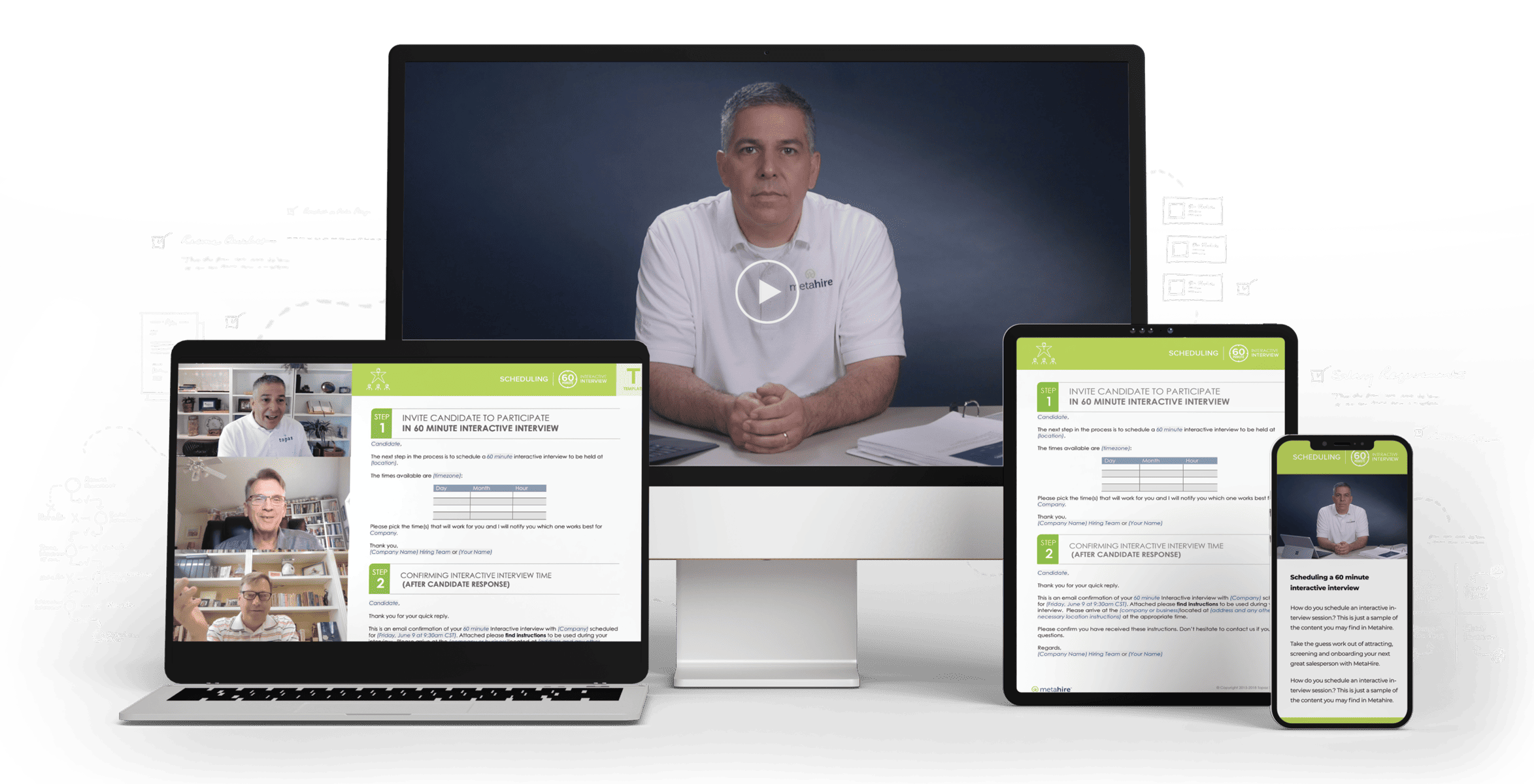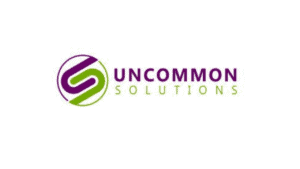Prospecting in sales is challenging and often misunderstood. Some salespeople live and die by it, others won’t “waste their time” with it, and some believe they can take shortcuts to produce a high-quality top-of-funnel.
But here’s the truth.
It’s not about quick fixes or one-size-fits-all strategies. Instead, prospecting requires a clear understanding of the tough yet crucial aspects of building and nurturing leads.
We aim to help you overcome common sales training and prospecting misconceptions by offering practical insights and straightforward advice — so let’s take an honest look at the realities of sales prospecting together.
Truth #1: Sales Prospecting is a Skill, Not Just a Numbers Game
The Common Misconception: Many believe that prospecting is purely a numbers game — the more calls or emails you send, the more leads you’ll generate. This approach reduces prospecting to a mechanical task, overlooking the skill and strategy involved.
The Reality: Effective prospecting is a skill that involves understanding your target market, crafting tailored messages, and engaging in meaningful conversations. It’s about quality, not just quantity.
Impact on Sales Professionals: Recognizing prospecting as a skill shifts the focus to developing strong communication, research abilities, and empathy. Salespeople must learn to identify and connect with the right prospects rather than simply increasing their outreach volume. This approach leads to more meaningful interactions, stronger relationships, and a higher conversion rate.
By embracing this truth, sales professionals can refine their prospecting techniques to be more strategic and impactful, leading to sustainable sales success.
Read our blog on 5 Practical Steps to Improve Your Prospecting Process here.
Truth #2: Rejection is Part of the Process, Not a Setback
The Common Misconception: In sales, rejection is often seen as a failure or a sign that something is wrong with the approach, product, or the salesperson themselves.
The Reality: Rejection is an inevitable and integral part of prospecting. Not every prospect will be a good fit, and that’s perfectly normal. It’s not a reflection of personal failure but a natural aspect of the sales process.
Impact on Sales Professionals: Understanding that rejection is part of the process helps salespeople develop resilience. It encourages them to view each ‘no’ as a step closer to ‘yes’ and rethink their going for the ‘yes’ sales strategy. This perspective allows them to learn from each interaction, refine their approach, and confidently move forward.
Consider the case of a seasoned salesperson who faced rejection in 90% of their prospecting calls over a month. Instead of getting disheartened, they analyzed these interactions, refined their approach, and eventually identified a more effective strategy that resonated better with their target audience.

Adopting this mindset transforms rejection from a discouragement into a learning opportunity. It helps build endurance and adaptability, qualities essential for long-term success in sales. By recognizing rejection as a standard part of the journey, sales professionals can maintain motivation and continue to pursue leads with persistence and insight.
Truth #3: Prospecting Requires Continuous Learning and Adaptation
The Common Misconception: Once you have a prospecting strategy that works, you can set it and forget it.
The Reality: The sales landscape is dynamic, with ever-evolving market trends, customer needs, and competitive strategies. What works today might not be effective tomorrow.
Impact on Sales Professionals: Salespeople must commit to continuous learning and adaptation. This means staying informed about industry trends, being open to new prospecting techniques, and regularly evaluating the effectiveness of their current strategies.
Quick scenario: If you previously excelled with email campaigns a year ago but find that your response rates are declining. What would you do? Persist with the same approach, expecting a sudden change in results, or explore new channels like LinkedIn? Highly successful Buyer Facilitators consistently adapt their approach to meet their clients where they are, leaving outdated and low-producing methods in the past.
This commitment to adaptability ensures sales professionals remain relevant and effective in their prospecting efforts — fostering a growth mindset crucial for navigating the complex and ever-changing challenges of sales prospecting.
Truth #4: Networking is Key, But It’s About Quality, Not Quantity
The Common Misconception: Networking is often viewed as a numbers game where the more contacts you have, the better your chances of success.
The Reality: Effective networking in prospecting isn’t about how many people you know but how well you know them and the quality of the relationships you build. Strong, trust-based relationships are more likely to produce valuable leads and referrals over cold outreach.
Impact on Sales Professionals: Salespeople need a strategic approach to networking. It involves identifying and nurturing relationships with key individuals most relevant to your business goals. This might mean focusing on fewer but more meaningful connections rather than spreading yourself too thin.
An effective networker might attend fewer events but spend more time cultivating deep connections with a specific group of individuals rather than trying to meet anyone and everyone. They understand that a strong relationship with a well-connected industry expert can be more valuable than dozens of superficial contacts. By prioritizing quality over quantity in networking, sales professionals can build a powerful, supportive network that generates leads, insights, advice, and long-term partnerships.

Truth #5: Prospecting Success Takes Time and Patience
The Common Misconception: Results from prospecting should be immediate. The strategy is often deemed a failure if leads aren’t converting quickly.
The Reality: True success in prospecting is a long-term game, and if you believe it should happen overnight, you’re barking up the wrong tree. It involves building relationships, understanding client needs by asking the right questions (and a lot of them), and often waiting for the right time for a prospect to be ready to buy.
Impact on Sales Professionals: This truth requires salespeople to be patient and persistent. They need to understand that nurturing leads is a process that takes time, and not every interaction will result in an immediate sale. Transactional salespeople will lose out in the prospecting game because buyers can sense desperation or the need to close a deal. In contrast, Buyer Facilitators who focus on relationships first tend to be more successful in long-term prospecting.
For instance, a salesperson might interact with a prospect several times over months*, providing value and building trust before the prospect is ready to purchase. This long-term approach may not provide instant gratification, but it creates sustainable and often more profitable relationships.
*Important Note: While you want to do your best to nurture relationships, ensure you don’t waste too much time on the wrong prospects. Your time is valuable!
Embracing patience in prospecting allows for a more strategic and thoughtful approach to building client relationships — encouraging sales professionals to focus on the long-term value of each prospect rather than seeking immediate results.
Prospecting Insights for Lasting Success
Coming up with the sales prospecting strategy that works best for you and your team is a journey filled with challenges, learning, and growth. We’ve uncovered some hard truths: prospecting is a skill honed over time, rejection is an integral part of the process, continuous adaptation is necessary, quality in networking trumps quantity, and success requires patience and perseverance.
These truths remind us that there are no shortcuts to genuine success in sales.
It’s about building lasting relationships, understanding your clients deeply, and adapting to the market’s ever-changing needs. By embracing these realities, sales professionals can develop strategies that are not only effective but also sustainable.
Mastering sales prospecting isn’t easy, but it’s undoubtedly rewarding. Armed with these insights and a commitment to continuous improvement, you’re well on your way to achieving and exceeding your sales goals.
See our client success stories to learn more about how our services can help your team overcome your greatest sales and sales hiring challenges.
How We Help
At Topaz Sales Consulting, we understand the intricacies of sales prospecting and are committed to helping sales professionals navigate their challenges. Our approach combines practical training, personalized coaching, and industry-leading strategies to empower sales teams to become revenue-generating machines.
We focus on developing core skills such as effective communication, asking tough questions, strategic networking, leadership, and so much more. Our expertise in handling rejection and building long-term client relationships is tailored to enhance your team’s resilience and success rate. By partnering with us, you can access knowledge and tools that transform your prospecting efforts into measurable success.







